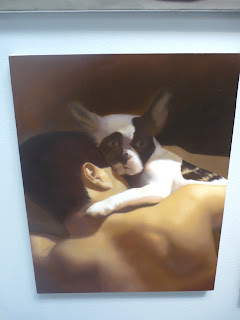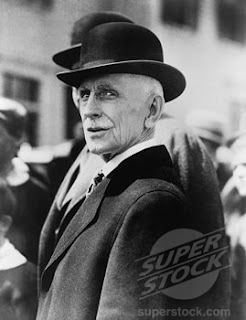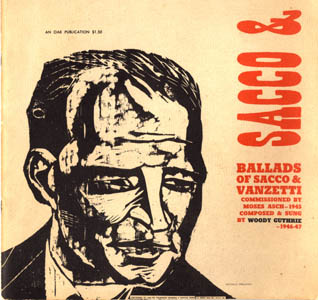"When one becomes a pacifist, an opponent to the taking of human life under any circumstances, it's not a final destination you reach and set up a comfortable home. It requires constant thought and work to stop wearing your sword." Maggie Jochild
Nicola Sacco and Bartolomeo Vanzetti were radical Italian immigrants living in America during the period of one of the most intense political repressions in American history, the"Red Scare" of 1919-1920.They became friends during World War I.And rather than go to war to kill their fellow-workers, they joined a group of anarchists who went to live in Mexico for the duration of the war.Their friendship and radical activities continued when they returned to Massachusetts.They led strikes and raised money to fight "frame-ups",walked picket lines,and demonstrated.They were both active in the defense of the foreign-born,who at that time were the targets of a sweeping witch hunt under the guidance of J. Edgar Hoover and the then U.S.Attorney General, A. Mitchell Palmer.They had organized protest meetings, raised defense money, and distributed handbills.They were often followed by spies hired by the federal government.They were organizing a protest meeting for May 9, 1920 which never came off because they were arrested and charged with armed robbery and the murder of two guards during a payroll robbery at South Braintree,Massachusetts on April 15, 1920.
But it was America...even then..so didn't these radical Italian-born anarchists who were Americans against the war deserve a "fair trial"...at least that was still the utopian dream of many writers,artists, and intellectuals who watched the trial as "suborned witnesses calmly lied on the stand, with knowledge,undoubtedly, that even if they were charged with having given perjured testimony they would go free."(William Patterson,The Man Who Cried Genocide,1971)
Judge Webster Thayer, who presided at both trials and the appeal process, revealed his underlying bias(because of their radical politics,anti-war stance,and ethic origins)against the two men who were not only anarchists,but World War I draft dodgers,when he reportedly said about Vanzetti:
"Although he may not have actually committed the crime attributed to him, he is nevertheless morally culpable, because he is the enemy of our existing institutions."
Right from the start, it was clear the two men were on trial for their political beliefs, as much as for their alleged crimes of armed robbery and murder.The actual evidence presented at the trial...became almost irrelevant.
Sacco said on August 22, 1927,fifteen hours before he and Vanzetti were executed:
"But what good is the evidence and what good is the argument?They are determined to kill us regardless of evidence, of law, of decency, of everything.If they give us a delay tonight, it will only mean they will kill us next week. Let us finish tonight.I'm weary of waiting seven yers to die, when they know all the time they intend to kill us."
And kill them they did.Sacco and Vanzetti became symbols for blue-collar workers around the world of "justice denied"...and there was no doubt when their guilty verdict came in it was a "class verdict" as much as an individual one...the state was delivering a clear message to the American working class...steer clear of "dangerous radical activities" and thought or "face the consequences".The Russian Revolution was a terrifying specter to the ruling American status quo and the rich.But once this verdict was pronounced...it was as if America was...forevermore..not so much America anymore.The radical trial of the century was also a radical societal paradigm shift that left many writers, artists, and intellectuals...impassioned and relentless in their despair at what had been lost. It was apparent to these artistic souls,and to many others,that America,the land of liberty and democracy,wasn't,after all,that much different than many of the older societies of the world,no longer embodying any bright ideal of "blind justice",but ultimately...serving the interests of the rich and powerful.The influential literary critic, Edmund Wilson(Axel's Castle,1931,a study of the symbolist movement)observed that the case "revealed the whole anatomy of American life with all its classes,professions, and points of view and all their relations, and it raised almost every fundamental question of our political and social system".Upton Sinclair in his 1928 novel about the trial,Boston, said:"the case worked upon the consciences of persons who were cursed with artistic temperaments".And indeed,in response to Presiding Judge Webster Thayer's "Did you see what I did to those anarchist bastards?", myriad writers and artists did "see' and continue "to see", and were and are moved to impassioned creative and artistic responses to the injustice of it all.After all, isn't that what art should do...hold up a mirror to humankind of the innermost...and darkest...realms of our being...90 years after the events of April 15, 1920 culminated in,to use F. Scott Fitzgerald's phrase,"one vast intrigue"...it is still well worth searching our souls and consciences for what lessons and warnings can be learned from the tainted ordeal of Sacco and Vanzetti...modern-day radicals,and even terrorists, are still rocking the fabric of American society, and "there will be blood"!
Sacco and Vanzetti's seven year saga of trials and appeals, and ultimate execution in the electric chair on August 23, 1927 after an advisory committee, appointed by Alvan T. Fuller,then Governor of Massachusetts, the "Lowell Committee", so-called because its most prominent member was A.Lawrence Lowell, then president of Harvard University, found that the judicial process had been just "on the whole" and clemency,demanded by a great public outcry, and influential behind-the-scenes interventions,was not warranted.
And there were still many who felt that "not every wop has the switch to the electric chair thrown by the president of Harvard". John Dos Passos,another American writer and intellectual powerfully moved by the Sacco and Vanzetti case, raged in one "Camera Eye" episode of his epochal masterpiece,USA:
All right you have won...
America our nation has
been beaten by strangers
who have turned our
language inside out...they
have built the electric chair
and hired the executioner
to throw the switch..all
right we are two nations...
This much we know to be true...as Katherine Anne Porter says in her moving portrait of her time as a protester on the picket line at the trial in Dedham,Massachusetts, TheNever-Ending Wrong, "Vanzetti's speech at the electric chair was the final word of an honest man. It is proven by testimony that he was innocent of murder...As he was being strapped into the electric chair, he said,"I wish to tell you that I am an innocent man. I never committed any crime but sometimes some sin. I wish to forgive some people for what they are now doing to me".Vanzetti also said at the end of his ordeal,"Never in our full life could we hope to do such work for tolerance, for justice, for man's understanding of man as now we do by accident. Our words - our lives - our pains - nothing! The taking of our lives - lives of a good shoemaker and a poor fish peddler - all! That last moment belongs to us - that agony is our triumph".Novelist Katherine Anne Porter(Ship of Fools) has said of Vanzetti,"he knew his will and he believed in the cause which he knew contained death for him unless he was very lucky indeed...Anarchy is a strange belief to die for, but my good friend in Mexico, Felipe Carillo, the Governor of Yucatan, explained to me why the revolutionists in his country who were robbing trains, wrecking haciendas, burning houses, destroying crops, and even whole villages of helpless people, were right.In their utter misery, they gathered money with violence, seized the materials built with their blood, to create their idea of a good society.It was right to destroy material evil and to take its loot for their cause. This is the doctrine of desperation, the last murderous rage before utter despair. They were wrong, but not more wrong than the thing they themselves were trying to destroy...Vanzetti kept a sacred pact, not just with his comrade Sacco but with the whole great solemn oath of his life, to the cause of freedom".Vanzetti had learned as a youth and carried with him throughout his life a quote from St.Agustine:"The blood of martyrs is the seed of liberty".
The Sacco and Vanzetti case is still very "psychically, societally, and maybe most importantly, politically" important to reconsider 90 years after the brutal killing of a paymaster and a security guard for the Slater and Morrill Shoe Company just a short time before the Slater payroll of about $16,000 was to be distributed to their workers. It calls some of the fundamental assumptions about our American society and way of life into question...and it calls some of the fundamental assumptions about American history starkly into question. Most of us, even those of us who are,as they say, "well-educated"...never read about, or learn anything about, the Sacco and Vanzetti Jazz Age "terrorists",nor have any compelling motivation to do so.They don't show up in most of the history textbooks...even at the college and university level...after numerous college level history courses, I first learned about these two radical anarchists who impacted so many,and changed America forever, when I heard a folk song in the 90's by Charlie King, Two Good Arms,written in 1977 for the 50th anniversary of the execution of Sacco and Vanzetti.It was a watershed moment for me...and I'm sure for many others when they first heard Charlie's song.It's worth listening to again.The chorus uses lines from letters Sacco and Vanzetti wrote trying to prove their innocence, and the title comes from a phrase in one of these letters.
Vanzetti commented in court after the sentence was announced:"The jury was hating us because we were against the war...Nobody can say that we are German spies or spies of any kind...I never committed a crime in my life - I have never stolen and I have never killed and I have never spilt blood, and I have fought against crime, and I have fought and I have sacrificed myself even to eliminate the crimes that the law and the church legitimate and sanctify".
And in the Chorus of Charlie King's Two Good Arms a fateful admonition to us all....We will remember this good shoemaker/We will remember this poor fish peddler/We will remember all the strong arms and hands/That never once found justice in the hands that rule this land....
The poet Edna St. Vincent Millay, who also protested on the picket-line in Massachusetts for Sacco and Vanzetti wrote a mournful and intensely disturbing poem about the case,"Justice Denied in Massachusetts":
Evil does overwhelm
The larkspur and the corn;
We have seen them go under.
Let us sit here, sit still,
Here in the sitting-room until
we die;
At the step of Death on the
walk, rise and go;
Leaving to our children's
children the beautiful doorway,
And this elm.
And a blighted earth to till
With a broken hoe.
For Millay and other of their supporters, the electrocution of Sacco and Vanzetti was proof that freedom of thought and freedom of expression were hollow phrases.Millay in her moving poem wrote of their executions as a betrayal of America's revolutionary heritage.
The poet, William Carlos Williams also wrote the poem, Impromptu: The Suckers in response to Sacco and Vanzetti's plight:
But after all, the thing that swung heaviest against you was that you were scared when they copped you. Explain that you nature's nobleman! For you know that every American is innocent and at peace in his own heart.He hasn't a damned thing to be afraid of. He knows the government is for him. Why, when a cop steps up and grabs you at night you just laugh and think it's a hell of a good joke ---
This is what was intended from the first.So take it out in your rotten whisky and silk underwear. That's what you get out of it. But put it down in your memory that this is the kind of stuff they can't get away with. It is there and it's loaded. No one can understand what makes the present age what it is. They are mystified by certain instances.
The Passion of Sacco and Vanzetti,Ben Shahn,a painter of the Diaspora who was known for his involvement in social causes,created a series of 23 paintings of Sacco and Vanzetti and their trial in the early1930's. This painting shows the two in their coffins as those prominent in their conviction and execution stand by,clad in top hats and formal dress,and Harvard President Lowell, who chaired the commission that found no evidence of bias in the trial or appeals process,in academic robes;behind them, in a courthouse portal, is a portrait Judge Webster Thayer,who presided over the trial and appeal process.
Ben Shahn with "The Passion of Sacco and Vanzetti...he first dealt with the theme in a series of gouaches he created in 1931-32;art historian,Alejandro Aureus says,"Shahn's involvement with...the Italian anarchists went deep,...tapping his own immigrant and working-class roots, as well as his family's socialist background".
Ben Shahn later returned to the theme of Sacco and Vanzetti once again for a cover for the August 23, 1952 issue of The Nation magazine.
And in 1967 Syracuse University unveiled Ben Shahn's monumental mosaic mural,The Passion of Sacco and Vanzetti,which tells the story,in three panels, of the fate of Sacco and Vanzetti who Shahn,an important American social realist artist,saw as modern day martyrs,dying for their political beliefs amid an atmosphere of fear, hatred, and intolerance.On the left of the mosaic mural ,made of marble and glass in Chartres,France ,are a group of protesters symbolizing the importance of this case around the world.In the center, Sacco and Vanzetti are seen as monumental figures casting large shadows over the flawed American system of justice. At the right, standing before the judge in his courthouse, are members of the Lowell Commission who approved the court proceedings. Shahn,however, uses them as representatives of the legal, political and moral institutions of the day as they stand over the coffins of the executed men.
Cartoons from The Daily Worker by Ellis
Text Book of Massachusetts, August 12, 1927,Ellis
The Same Old Massachusetts, New Masses, September, 1927
Sacco and Vanzetti,Labor's Martyrs,Max Shachtman,25 cents.
Judge Webster Thayer, sentenced Sacco and Vanzetti to be electrocuted in 1927.He allowed the trial to be tainted by the 1920's Red Scare and the prevailing anti-immigrant bias.
Poet Edna St. Vincent Millay on the picket line for Sacco and Vanzetti
A two-hour funeral procession bearing huge floral tributes moved through Boston...the Boston Globe called it "one of the most tremendous funerals of modern times"...the head of the motion picture industry's umbrella organization ordered all film of the funeral procession destroyed...
See Sacco e Vanzetti
http://youtu.be/gcgYwTnBIIQ
There is no other country but the heart...from "To Sacco and Vanzetti by Louis Ginsberg
For Further Reading......
1.Justice Denied In Massachusetts,poem published in The Buck in the Snow and Other Poems,1928,Edna St. Vincent Millay
2.The Never-Ending Wrong, Katherine Anne Porter, 1977.
3.Impromptu: The Suckers,poem,William Carlos Williams
4.Facing the Chair:Sacco and Vanzetti,1927, John Dos Passos
All over the world people are hopefully, heartbrokenly watching the Sacco-Vanzetti Case as a focus in the unending fight for human rights of oppressed individuals and masses against oppressing individuals and masses.
From Facing the Chair,John Dos Passos
5.Anarchist Portraits,1990, Paul Avrich
6.Sacco and Vanzetti,The Anarchist Background,Paul Avrich, 1991
7.Sacco and Vanzetti Must Die!,Mark Binelli,reimagines the pair as a vaudeville team who talk shop with Charlie Chaplin and go on a USO tour of Italy..."its best riffs play like frisky,radical-chic remixes of the pop canon".
8.Ballads of Sacco & Vanzetti,CD,Woody Guthrie,recorded between 1946 and 1947,Woody Guthrie crafted a truly fascinating historical document that serves as something of a prototype for a "concept" album;in "Red Wine" recounting the scene in Boston after the execution:"I thought those crowds would pull the town down/I was hoping they'd do it and change things around".
9.Boston,novel, Upton Sinclair
10.Gods of the Lightning,Maxwell Anderson.
Some rough guys get caught for murder and when they start to put 'em through
all the radicals and poets in the country begin marching around the jail.
From the Gods of the Lightning,Maxwell Anderson
11.The Letters of Sacco and Vanzetti,The Viking Press,ed.Frankfurter.
Philosopher Bertrand Russell led the campaign in Britain against the conviction of Sacco and Vanzetti:
I am forced to conclude that they were condemned on account of their political opinions and that men who ought to have known better allowed themselves to express misleading views as to the evidence because they held that men with such opinions have no right to live. A view of this sort is one which is very dangerous, since it transfers from the theological to the political sphere a form of persecution which it was thought that civilized countries had outgrown.


































































